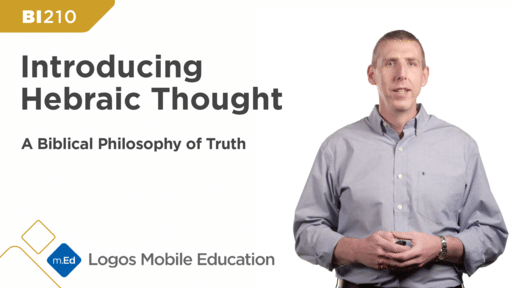BI210 Introducing Hebraic Thought: A Biblical Philosophy of Truth
Sign in to rateGain a better understanding of the thought-world of the Bible with Introducing Hebraic Thought: A Biblical Philosophy of Truth (BI210). Hebraic thought, according to Dr. Dru Johnson, is the thinking, concepts, and practices that emerge consistently across the biblical literature from the Hebrew Bible into the New Testament. In this course Dru Johnson looks at the philosophical tradition embedded in Scripture. He explores how the biblical writers communicated and describes the marks of Hebraic though. You’ll come away from the course with an increased biblical literacy and fluency and a better appreciation of the intellectual tradition of the Bible.
